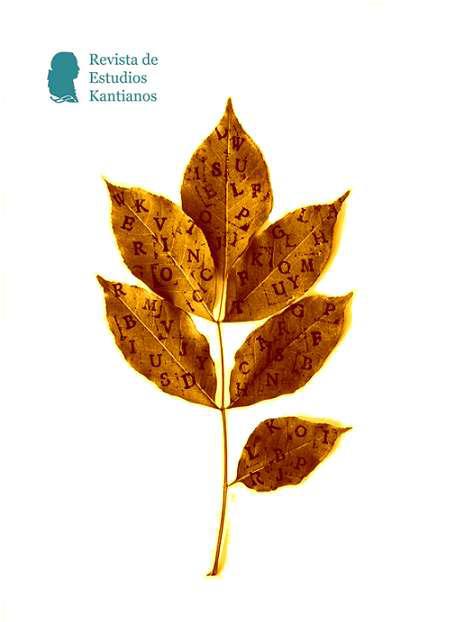Leibniz and Kant on God
DOI:
https://doi.org/10.7203/REK.8.2.26220Keywords:
Leibniz, Kant, God, Monadology, Critique of Pure Reason Abstract
Abstract
Is Immanuel Kant’s critique of the proofs of God’s existence accurate? In order to answer this question, I analyse Leibniz’ proof in his “Monadology” and I determine the relation between the cosmological and the ontological version of this proof. Since Kant often refers (implicitly) to Leibniz’ argument, I examine Kant’s critique of rational theology in the Critique of Pure Reason in the light of Leibniz’ strategy. Kant’s critique of Leibniz’ argument is partly biased by his own concept of “transcendental idealism” and fails to reject it. On the other hand, many questions in Leibniz’ attempt remain still open.
 Downloads
Downloads
 References
References
Adam, C., and Tannery, P. (Eds.) (1996). OEuvres de Descartes. Vrin.
Adorno, T. W. (1975). Negative Dialektik. Suhrkamp.
Balestra, A. (2003). Kontingente Wahrheiten. Ein Beitrag zur Leibnizschen
Metaphysik der Substanz. Königshausen & Neumann.
Bromand, J. (2011). Kant und Frege über Existenz. In J. Bromand and G.
Kreis (Eds.), Gottesbeweise von Anselm bis Gödel (pp. 244-248). Suhrkamp.
Craig, W. L. (1980). The cosmological argument from Plato to Leibniz.
Macmillan.
Cramer, W. (2010). Gottesbeweise und ihre Kritik. Prüfung ihrer
Beweiskraft. Klostermann.
Gutschmidt, H. (2014). Objektive Ideen. Untersuchungen zum Verhältnis von
Idee, Begriff und Begründung bei René Descartes und in der
nachkartesischen Philosophie des 17. Jahrhunderts. Mohr Siebeck.
Gutschmidt, H. (2016). Notio Dei. Descartes’ “Antwort” auf Leibniz’ Kritik
am ontologischen Beweis. In W. Li (Ed.), “Für unser Glück oder das Glück anderer”. Vorträge des X. Internationalen Leibniz-Kongresses, Hannover,
18. – 23. Juli 2016, Bd. II (pp. 609-617). Georg Olms.
Gutschmidt, H. (2019). Das Ens necessarium bei Leibniz und seinen
Interpreten. Studia Leibnitiana, 51, 119-132.
Hindrichs, G. (2011). Das Absolute und das Subjekt. Untersuchungen zum
Verhältnis von Metaphysik und Nachmetaphysik. Klostermann.
Höffe, O. (2011). Kants Kritik der reinen Vernunft. Die Grundlegung der
modernen Philosophie. C. H. Beck.
Kant, I. (1998). Critique of pure reason. Cambridge University Press.
Klimmek, N. F. (2005). Kants System der transzendentalen Ideen. Walter de
Gruyter.
Leibniz, G. W. (1880). Discours de Métaphysique. In C. I. Gerhardt (Ed.),
Die philosophischen Schriften von Gottfried Wilhelm Leibniz, Bd. 4 (pp. 427-
463). Weidmann.
Leibniz, G. W. (1890). De rerum originatione radicali. In C. I. Gerhardt (Ed.),
Die philosophischen Schriften von Gottfried Wilhelm Leibniz, Bd. 7 (pp. 302-
308). Weidmann.
Leibniz, G. W. (2014). Monadology. In: Ll. Strickland (Ed.), Leibniz’
Monadology. A New Translation and Guide. Edinburgh University Press.
Look, B. C. (2018). Arguments for the existence of God. In M. R. Antognazza
(Ed.), The Oxford handbook of Leibniz (pp. 701-716). Oxford University
Press.
Mojsisch, B. (Ed.) (1989). Kann Gottes Nicht-Sein gedacht werden? Die
Kontroverse von Anselm von Canterbury und Gaunilo von Marmoutiers.
Dieterich.
Oppy, G. (1995). Ontological arguments and belief in God. Cambridge
University Press.
Pruss, A. R. (2009). The Leibnizian cosmological argument. In W. L. Craig
and J. P. Moreland (Eds.), The Blackwell companion to natural theology (pp.
24-100). Blackwell.
Sobel, J. H. (2004). Logic and theism. Arguments for and against beliefs in
God. Cambridge University Press.
Spinoza, B. (1984). Die Ethik. Reclam.
Downloads
Published
How to Cite
-
Abstract240
-
PDF (Español)105
Issue
Section
License
![]()
The authors who publish in this journal agree with the following terms:
- The authors retain their copyright and guarantee to the journal the right to be the first to publish the work and to license it under a Creative Commons Attribution License that allows others to share the work with an acknowledgement of its authorship and the initial publication in this journal.
- Authors may separately establish additional agreements for non-exclusive distribution of the version of the work published in the journal (for example, placing it in an institutional repository or publishing it in a book), with acknowledgement of its initial publication in this journal.
- Authors are allowed and encouraged to disseminate their work electronically (e.g., in institutional repositories or on their own website) before and during the submission process, as this can lead to productive exchanges as well as earlier and greater citation of published work (see The Effect of Open Access).








